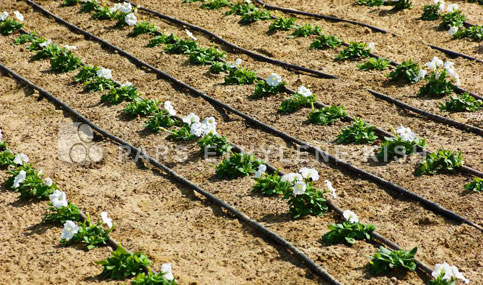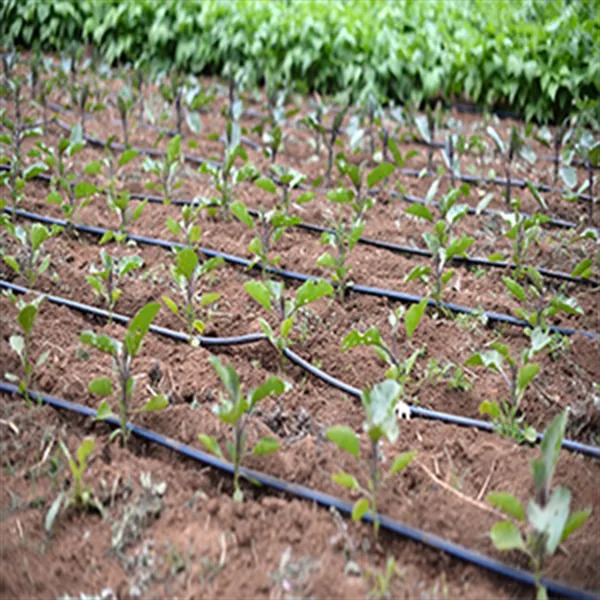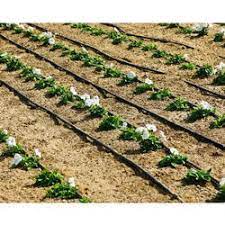Is Agricultural irrigation polyethylene pipes Good?
Agricultural irrigation polyethylene pipes are a type of plastic pipe that is commonly used in farming to transport water from a source to crops. These pipes are lightweight, durable, and flexible, which makes them an excellent choice for irrigation systems. Polyethylene pipes come in different sizes and lengths, and they're typically made from high-density or low-density polyethylene.
Using polyethylene pipes for irrigation has several benefits. For one, they're resistant to corrosion, chemicals, and UV radiation, which means they last longer and require less maintenance. They also have a smooth surface that helps to reduce friction and pressure loss, which can improve the efficiency of the irrigation system.
When selecting the right polyethylene pipe for your irrigation system, it's important to consider factors like water pressure, flow rate, soil type, and the type of crop you're growing. Choosing the right diameter and thickness of the pipe is critical to ensuring your system operates efficiently.
Installing and maintaining your polyethylene pipes is also crucial. Regular inspections, repairs, and cleaning can help prevent blockages and ensure the water flows properly.
Overall, using agricultural irrigation polyethylene pipes is a cost-effective and efficient way to transport water to your crops and help them thrive.
Yes, using agricultural irrigation polyethylene pipes can be a good choice for farmers who need to transport water to their crops. Polyethylene pipes are lightweight, durable, and resistant to corrosion, chemicals, and UV radiation.
They also have a smooth surface that helps to reduce friction and pressure loss, which can improve the efficiency of the irrigation system.
Choosing the right diameter and thickness of the pipe is important to ensure your system operates efficiently, and proper installation and maintenance can help prolong the life of your pipes and prevent blockages.
Overall, using agricultural irrigation polyethylene pipes can be a cost-effective and efficient way to transport water to your crops and help them thrive.

Is it Expensive?
The cost of agricultural irrigation polyethylene pipes can vary depending on several factors, such as the diameter, length, and thickness of the pipe, as well as the location and supplier. However, in general, polyethylene pipes tend to be more affordable compared to other types of pipes commonly used for irrigation, such as PVC or metal pipes.
Additionally, because polyethylene pipes are lightweight, durable, and resistant to corrosion and other types of damage, they can be a cost-effective choice in the long run, as they may require less maintenance and replacements over time.
Overall, while the cost of agricultural irrigation polyethylene pipes can vary, they are generally considered a relatively affordable and cost-effective option for transporting water to crops.
Are there better choices than Agricultural irrigation polyethylene pipes?
There are various types of pipes that can be used for agricultural irrigation, and each has its advantages and disadvantages. Some of the common alternatives to polyethylene pipes include PVC pipes, metal pipes, concrete pipes, and drip irrigation systems.
PVC pipes are a popular choice due to their affordability and ease of installation. They are also resistant to corrosion and chemicals, making them suitable for a variety of applications. However, they can become brittle over time and may not be as durable as polyethylene pipes.
Metal pipes, such as aluminum or steel pipes, are known for their strength and durability. They can withstand high pressures and are often used for large-scale irrigation systems. However, they are heavier and more expensive than polyethylene pipes, and they may be prone to corrosion if not properly maintained.
Concrete pipes are another option, and they are known for their strength and durability. They can also withstand high pressures and are suitable for large-scale irrigation systems. However, they are heavy and difficult to install and may be more expensive than other types of pipes.
Drip irrigation systems, on the other hand, involve a network of tubing that delivers water directly to the plant's roots, minimizing water waste and improving efficiency. They can be a good choice for water-scarce regions, but they may be more expensive to install and require more maintenance than traditional irrigation systems.
Ultimately, the best choice of pipe for agricultural irrigation will depend on various factors such as the type of crops being grown, the size and terrain of the farm, and the available budget.
Polyethylene pipes are a popular and cost-effective choice for many farmers, but other types of pipes or irrigation systems may be more suitable for specific applications.

The best choice in the middle east, Pars ethylene-kish
Welcome to the world of pipes, where our imagination takes flight and we bring your wildest pipe dreams to life. At our state-of-the-art pipe factory, we craft pipes with precision and care, using only the finest materials and cutting-edge technology.
Our team of skilled pipe artisans takes pride in every pipe that rolls off our production line, knowing that each one is a masterpiece in its own right. From sleek and elegant to bold and daring, our pipes are designed to make a statement and leave a lasting impression.
Whether you're looking for pipes that can withstand extreme temperatures, corrosive substances, or just the wear and tear of daily use, we've got you covered. With our wide range of sizes, materials, and customizations, we can create the perfect pipe for any application.
So come explore our pipe factory, where innovation meets imagination and anything is possible. Let us show you what's possible when you combine creativity, expertise, and a passion for pipes.

Final Thoughts
In conclusion, agricultural irrigation polyethylene pipes are a popular and cost-effective choice for farmers who need to transport water to their crops. These pipes are durable, resistant to corrosion and chemicals, and have a smooth surface that helps reduce friction and pressure loss. While there are other types of pipes and irrigation systems available, the choice of pipe will depend on various factors, including the type of crops being grown, the size and terrain of the farm, and the available budget.
At the same time, pipes are not just limited to practical applications like irrigation. As demonstrated by our creative copyright, pipes can also be a source of inspiration and creativity, with endless possibilities for customization and design. From plumbing to art installations, pipes have a place in many industries and can be used to solve a wide range of problems.
Overall, the world of pipes is fascinating and constantly evolving, and it's exciting to see how this industry will continue to innovate and adapt to the changing needs of society.
If you liked this post you can let us know in the comment section, we would appreciate it.